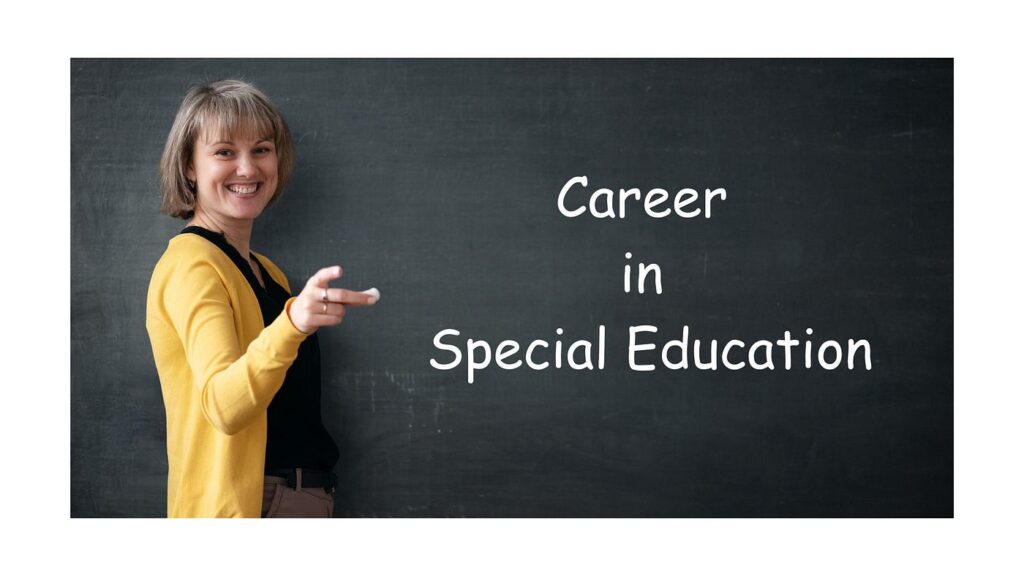Embracing a career in special education is not only a professional choice but also a commitment to positively impacting the lives of students with unique learning needs. Special education teachers are essential in crafting an inclusive and supportive learning environment where every student has the opportunity to thrive. These educators require a specialized set of skills, training, and patience to navigate the diverse challenges they face daily. If you aspire to join this rewarding field or are seeking to advance within it, understanding the necessary steps and qualifications is crucial. In this article, we will explore the intricacies of a career in special education.
Educational Pathways for Aspiring Special Education Professionals
Aspirants of a special education career can take several educational pathways to enter the field. Typically, a bachelor’s degree in special education is the first step, providing the fundamental knowledge and pedagogical practices for supporting students with disabilities. The curriculum often includes hands-on experience through student-teaching internships, which are invaluable in bridging theory and practice.
For those seeking to advance their expertise, a master’s degree in special education online can offer both convenience and depth. These programs allow educators to specialize further, mastering strategies that cater to specific disabilities or gaining the skills to take on leadership roles within educational settings.
Scholarships and financial assistance programs may be available to assist with continued education. Prospective candidates should explore these resources to alleviate costs, ensuring they can focus on acquiring the competencies essential for their development as educators. This upfront investment in professional education pays dividends in preparedness and job opportunities.
The Role and Impact of Special Education Teachers
Special education teachers are instrumental in the development and success of students with disabilities. They assess students’ abilities, develop individualized education plans (IEPs), and use tailored teaching methods to accommodate various learning styles. Beyond academic instruction, they also focus on social, emotional, and life skills that nurture independence and confidence in their students.
Their impact stretches beyond the classroom walls, often advocating for students’ needs with parents, fellow educators, and community members. This role requires a unique blend of compassion, adaptability, and resourcefulness. Special educators become a bridge, connecting students with special needs to a world of learning opportunities that respects their individuality and promotes equality.
Collaboration with other education professionals, such as occupational therapists and speech-language pathologists, is commonplace in special education. Together, they work towards common goals, fostering an environment that values diversity and learning differences. Special education teachers continuously modify teaching approaches and materials to cater to each student’s needs, ensuring educational justice and inclusivity.
Job Opportunities and Career Progression in Special Education
The demand for special education teachers remains consistent, as inclusive education becomes increasingly prevalent. Opportunities exist across various educational environments, from traditional public schools to specialized schools, private institutions, and even in-home tutoring setups.
Career progression in this field can lead to positions like special education coordinators, department heads, or consultants specializing in curriculum development or educational policy. Those with a passion for research may also contribute to academic advancements by studying teaching methods, learning interventions, or policy impacts.
Furthermore, the skills acquired in special education are transferrable to other roles that involve working with individuals with disabilities, such as vocational training or therapeutic services. The diverse set of skills developed can open doors to various career paths within the sphere of education and beyond.
Adapting to Challenges and Rewards in Special Education Teaching
Special education teachers face a range of challenges, including diverse classroom needs, resource limitations, and influencing a wider understanding and acceptance of diverse learning abilities. Finding balance and learning to adapt to constantly shifting educational landscapes are requisites for success.
However, these challenges are counterbalanced by remarkable rewards. The breakthrough moments when students achieve their goals, whether academically or in terms of personal growth, are profoundly fulfilling. These achievements not only change the lives of the students but also impart a sense of accomplishment and purpose to educators.
Overall, a career in special education is a journey filled with challenges that call for resilience, ingenuity, and a heart dedicated to fostering learning for all students, regardless of their abilities. The path to becoming a special educator is marked by rigorous training, certification, and an ongoing commitment to professional excellence. Those who choose this path make a lasting impact on society, fulfilling the promise of education as a pathway to empowerment for every learner.

